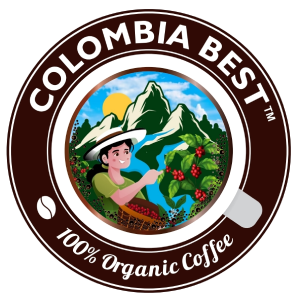When your grandmother opened a 2 pound can of Folgers “Mountain Grown” coffee 50 years ago, this is probably the closest many of you will come to real coffee. That powerful coffee aroma filled the room. Today it is impossible to find that same level of coffee. The international coffee industry, as with most industries, is controlled by mega international companies. The need to fill the vast coffee appetite of the world today is staggering. This has given birth to many methods of increasing production. It has also brought about GMO strains of coffee that are grown and ripened with chemicals just like wheat, soybeans and other crops.
Your local supermarket or coffee shop receives its coffee in some form from a supplier and in most cases they have no idea what happened to that coffee before it got to their supplier. Now enter the world of Premium Specialty Coffee. At Colombia Best Coffee we manage the entire process from growing the plants to harvest to processing to shipping so we can tell you with confidence that we are selling a completely honest product.
There are a few growers who long ago decided they would not treat their land with chemicals. These few realized that someday more value would be given to true organic non-GMO products that were raised and processed in the old fashioned way … one bean at time. They chose to use the traditional methods of hand labor and fertilization. Those were the methods used to make the coffee in grandma’s kitchen. Methods passed down from generation to generation.
Below is a table comparing the standard Arabica coffee produced for today’s mass market with Premium Specialty coffee produced by Colombia BestTM Coffee. When you see the amount of labor and love that goes into every bean, you will cherish the fact that you can purchase our coffee in limited quantities. You will also realize that it would be impossible for those already producing chemically assisted products to change and start growing premium coffee.
The main reason is that most farms have already been thoroughly polluted with chemicals and it would take years for these un-natural elements to be cleansed from the land before they could start growing premium coffee. Then they would have to wait 5 to 7 years for the first crops to be produced. Combine this with the fact that specialty coffee plants produce less coffee than the commercial Arabica varieties and you have the end result … a high value coffee.
Specialty Premium coffees are as rare as fine wine or other products whose value comes with quality. Just remember, coffee is a fruit and should taste like a fruit in your cup with a light brown color. Most coffee today is black with a bitter charcoal after taste because it is over roasted to hide the bad nature of the product.
| Property of Coffee | Arabica Standard Coffee | Premium Specialty Coffee |
| Plants | Large high producing | Smaller lower producing |
| Cut/Replant Cycle | Annual after harvest | 20 years |
| Harvest | Annual or Semi-annual force ripened with chemicals | Continual harvest – only naturally ripe red beans |
| Pollination | GMO chemical | Bees |
| GMO | Yes | No (never) |
| Pesticides | Yes | No (never) |
| Herbicides | Yes | No (hand labor clear weeds) |
| Fertilizers | Chemical | Natural (bean husk) |
| Machines | Yes | No (horses and hand labor) |
| Growing Location | Mixture mountain and tropical (like Brazil low quality coffee) | 4000’ to 6000’ southern Colombia Mountains |
| Processing | Mass processed | Small quantities |
| Fermentation | Large Quantities – high temperatures may create Phenols (cancerous chemicals) | Small lots with controlled temperature never create phenols |
| Roasting | Over roasted dark brown black | Lightly roasted (light brown) |
| Varieties | One primary variety | 3 varieties – Rose Bourbon – Geisha – Tabi |
| Taste | Lacks real coffee taste (most have never tasted real coffee) | Like a fine wine with fruity coffee flavor and after taste |
| Teeth Stain | Builds up stain over time | No residual stain |
| Competition | Highly competitive international coffee market with large corporations | No competition – most land has been contaminated with chemicals – a few select places can grow real coffee |
| Cost per pound | $10 to $30 (available raw, roasted bean or ground) | $75 Roasted Whole Beans retail or wholesale/bulk |
| Cost per cup in coffee shop | $2 to $5 | $7 to $10 (people will pay extra and purchase by the pound in coffee shops) |
